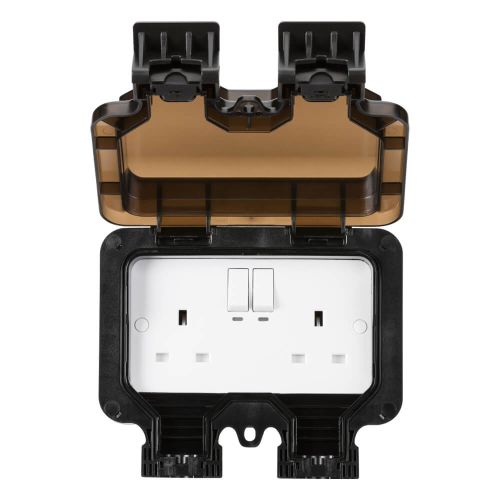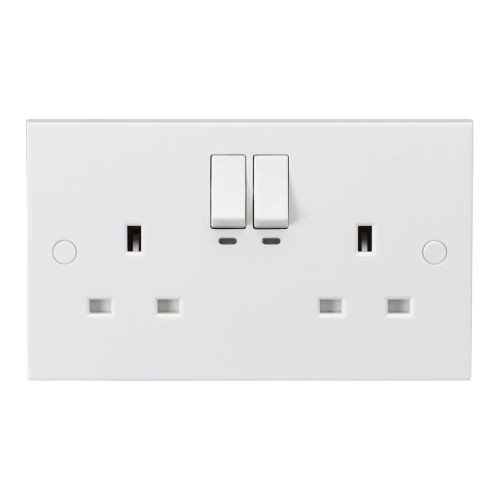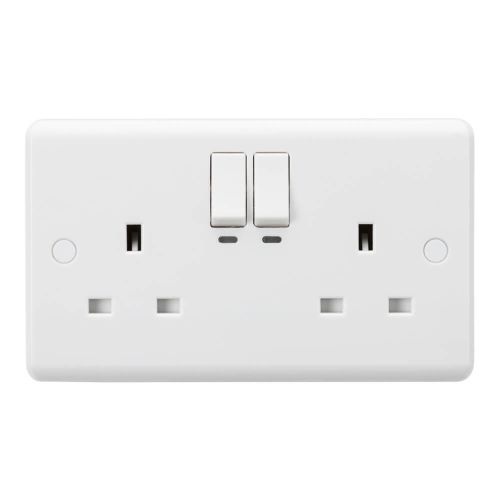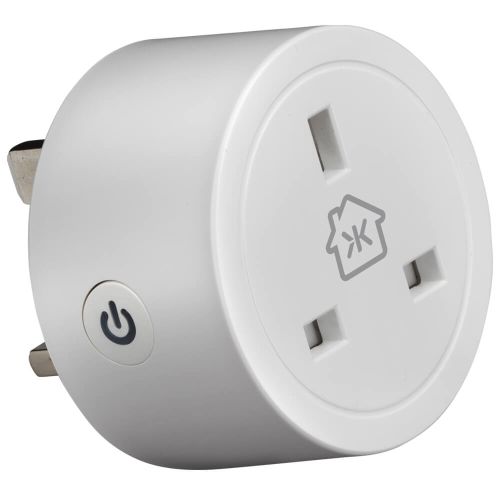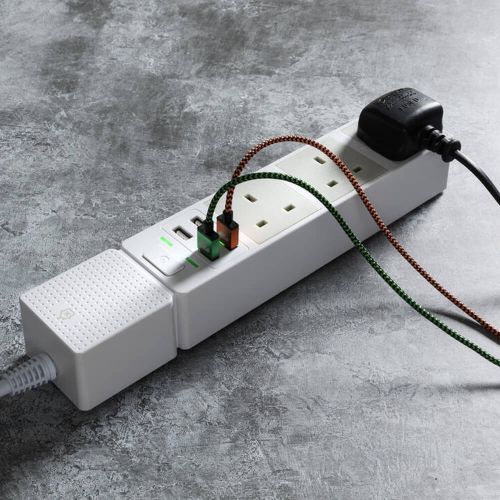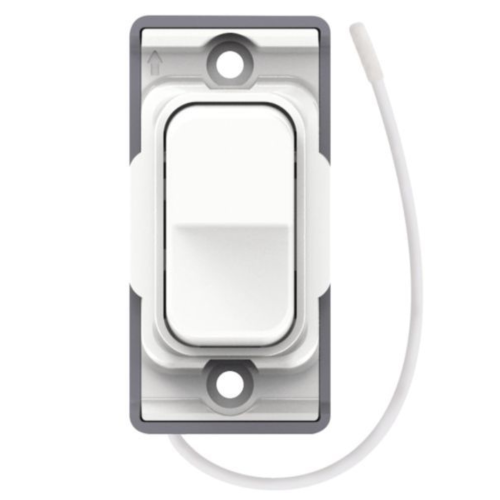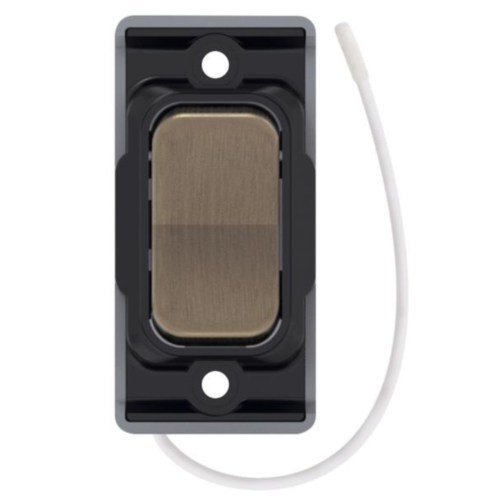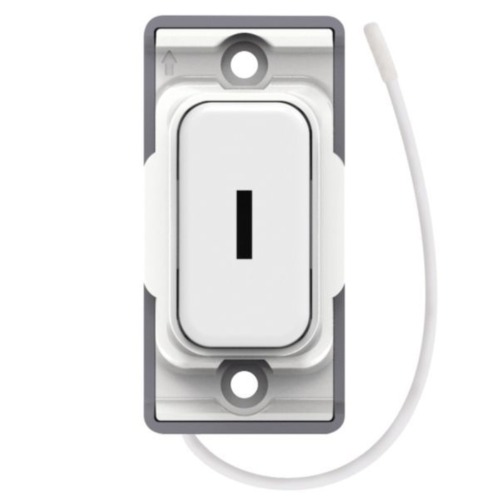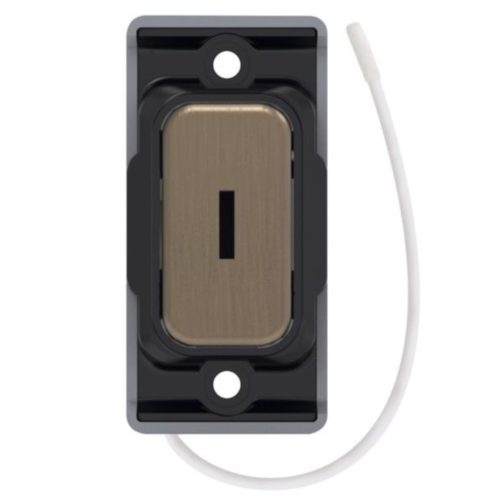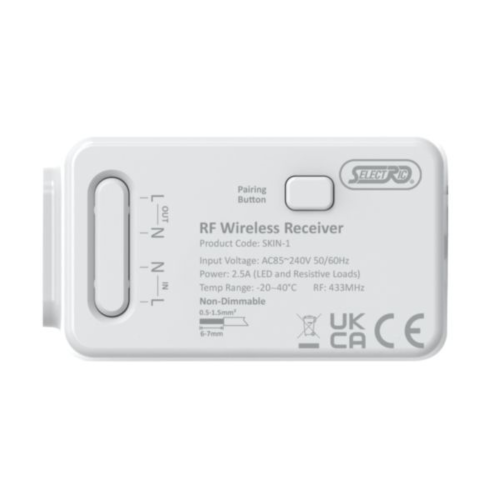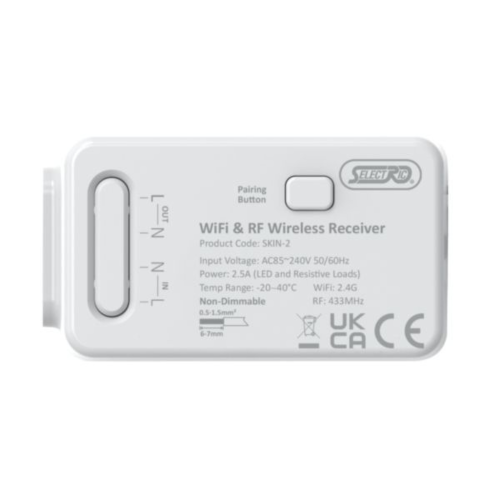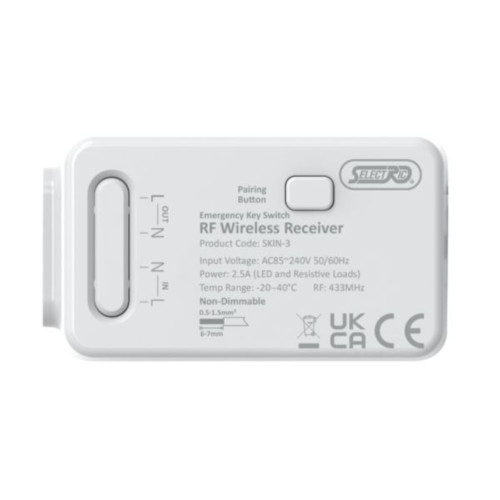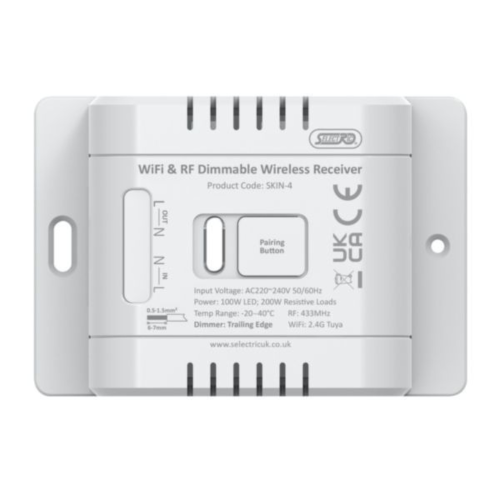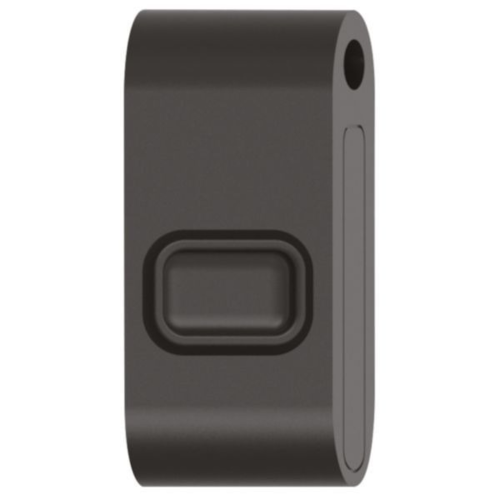Smart Switches & Sockets
Smart Home devices create a more comfortable and energy-efficient environment for end users.
A smart home provides contemporary automation techniques to offer a straightforward and useful method of managing appliances in your home. The newest smart technology can include the scheduling and automatic functioning of heating, lighting, and electric appliances.
You have more control over your electrical appliances with smart home technologies, and you can ensure that they operate effectively. With smart home devices, you can reduce your energy costs.
With the help of internet-connected smart home devices, end users can control the functions of their electrical appliances with remote control from anywhere in the world.
At Meteor Electrical, we provide a wide range of Smart Home devices including smart lamps, smart heating and smart switches and sockets.
Smart Lamps / Light Bulbs
With our smart light bulb range, end users can easily manage the lighting in your house. To create the perfect ambiance in your house, you may control smart lights from your phone and alter the colour or brightness.
Smart Heating
Smart heaters are an excellent method to conserve energy while heating your house comfortably.
Control the warmth of your home from your smartphone or tablet. You can warm your house without wasting any heat energy. Our range of iLifestyle heaters at Meteor Electrical creates a comfortable heating experience.
Smart Sockets and Switches:
You can use smart switches to operate your electrical appliances including lighting, tvs, and kitchen appliances using a network-capable smart home device. One app is used to carry out all these devices.
Anything in your home that is turned on or off by a switch gets a smart home function when you utilize smart switches. Smart switches and sockets also have additional functions such as voice control with Amazon Alexa and Google Assistant.
Check out our full range of Smart Home devices, available for Next Day Delivery.
What Is A Smart Home?
A smart home is an efficient setup where electrical appliances are automatically controlled from anywhere using a Wi-Fi connection. You can use a smartphone or a networked device to control your appliances remotely.
Devices and appliances in smart home systems are interconnected through the internet. This connection allows users to control the functions of the linked devices. You can manage your smart home technology from a tablet device as well.
Benefits of A Smart Home
A smart home helps you stay connected to every appliance in your home. This connectivity is excellent for making your products more efficient and convenient.
With this feature, you can experience several incredible benefits of smart homes. Let’s take a look at some of them.
Manage All Your Devices From One Place
As we’ve mentioned before, the biggest draw to smart homes is the higher level of convenience.
Keeping all your appliance connected through one software is a great way to make home management easier.
Once you connect the smart products to your phone, tablet etc., you can access several functions to program your products. These features surpass an ordinary appliance’s capabilities to give you a better user experience.
With a smart home, you can customise all the technology to fit your needs. The best part is you can do all this from just one spot.
It Makes Appliances More Convenient
Better organisation and convenience go hand in hand when it comes to smart homes. These products are designed to simplify your life with their added functionality.
Smart home technology can automate simple home functions. For example, if you want all your lighting to turn on at dusk, a smart bulb will help you do that.
Or you might want to set a heating schedule to always be welcomed by a warm and cosy home when you’re away. What’s more, you can also keep track of all your smart products with just your phone.
Avoid Leaving Your Appliances Running
A smart home lets you control your connected technology even when you’re not at home.
If you had to leave your home in a rush and forget to turn your lights on, you could simply log into the phone app and switch off the luminaries. This is a great way to keep unnecessary electricity costs down.
Improved Energy Efficiency
The best part about having a smart home is using your appliances more efficiently. Energy efficiency is a great way to reduce high electricity costs without compromising comfort.
Appliances such as conventional heaters often take up a lot of energy, driving up your costs; because of this, investing in smart heating systems is crucial.
Better Safety and Real-Time Surveillance
Keeping a safe home is important for maintaining peace of mind. Smart homes are designed to provide homeowners with various tools that enhance their property’s safety.
You can install smart light bulbs outside your home to create secure lighting. If you’re away from home, you can turn on these bulbs to create a secure perimeter around your home and keep any intruders away.
Combine smart security cameras with these luminaries to improve your home’s safety further.
Hands-Free Control of Your Appliances
Smart home products allow you to control their functions from a distance. Most smart lighting comes with a remote control that lets you operate the device from anywhere in the home.
Some such products are also controllable through a phone app for even better hands-free. This allows you to control your appliances even outside your home.
As long as you as connected to a Wi-Fi network, you can enjoy hands-free control with your smart home products.
Simplify Household Task
Another great benefit of smart home technology is how it simplifies simple household tasks. Some homeowners don’t have enough time to dedicate to household chores, so smart home appliances do the job for them.
Important Energy Insights
If energy efficiency is your main concern, installing a smart home system will benefit you. Many smart home systems provide helpful insights and data based on your energy consumption.
Simply log into the corresponding app to look through all the necessary information to help you make efficient choices.
You can browse through this information to find areas for efficiency, or you can cut your energy consumption in these areas to save money on utility bills.
Wireless Or Hardwired Installation?
Smart home technology can be either wireless or a hardwired system. Sometimes it can be both.
Wireless smart home systems are easier to install and work well with smart climate control, smart lighting, and security. These systems are also cost-friendly and can help you save significantly on installation costs.
Hardwired smart home systems can increase the resale value of any household property. However, these systems are very expensive to install and may not be cost-effective for many consumers.
The best way to build a smart home is by gradually introducing smart appliances. You can easily do so through smart lighting and heating which will help you start building a connected home.
Replace Ordinary Bulbs With Smart Bulbs
Individual smart light bulbs are a great way to start building a smart home system. These smart luminaries can be connected to existing light sockets and set up with your home’s Wi-Fi network for smart control.
In most models, smart lights are also compatible via an app, which means you can use your smartphone or tablet to operate your lighting.
Some smart bulbs use motion and lighting sensors that automatically turn on/off based on the amount of detected light or the presence of movement or people in a given space.
With these innovative yet simple features, you can significantly reduce costs associated with excess energy consumption.
Some of the most innovative and advanced smart lighting units also use specific machine-learning techniques for more efficient energy use. With the machine learning component, the lights monitor and learn the lighting patterns of the home's occupants.
By learning the patterns, the light automatically turns on/off during specific times of the day based on your everyday habits. Sometimes these lights will turn on when you are away from home to keep intruders away while the house is unoccupied.
Energy Efficiency And Savings
One of the most crucial benefits of smart lighting products is that you can significantly reduce your energy consumption with increased control. If you leave your light turned on, a smart bulb connected to an app will send you an alert.
Once you receive the alert, you can simply turn the light off from the app instead of going back home. As mentioned earlier, almost all smart lighting products are made from LED bulbs to ensure efficient energy use.
LED bulbs are 75% more efficient than conventional light bulbs, which means you will see major savings on your energy bills in the long run. LEDs also have a longer lifespan than incandescent light bulbs, saving you money on maintenance and replacement costs.
A Smart Switch vs A Regular Switch
A switch is a small but integral part of any home. To understand how efficient smart switches are, comparing and contrasting them with regular switches is essential.
A smart switch is similar to a regular switch in terms of installation. These devices go into your wall and control the lighting, fan, or socket.
Both smart switches and regular switches have a similar mechanism, and you must interact with them to toggle the device on/off. The main distinction between these two switches is the added functionality through an app.
When you equip your home with a smart switch, you find better ways of using your energy more efficiently, as you can control your appliances according to your needs.
In addition, when compared to regular switches, smart switches give you much more precise control of your energy consumption.
With all these features in mind, a smart switch is a much more appealing mechanism that will greatly benefit any homeowner. These switches sometimes include dimming functions, a full-screen display with a touchscreen, and a built-in microphone.
You can purchase a smart switch with traditional toggles if you prefer a more traditional look with your switches. The level of detail and specialised features depends on your budget and requirements.
Smart Heaters Compared To Regular Heaters
Heating is a significant energy consumer in many households. It is crucial to have an efficient heater to provide comfortable warmth and keep energy costs low.
Smart heaters are a great way to save heat energy while creating a comfortable home environment. You can control these modern heaters with a smartphone or Bluetooth device for on-demand heating.
On-demand heating ensures you don’t waste any heart energy while warming your home. Many smart heaters also have a rapid heat-up time, so you don’t have to keep your heating unit running.
Many smart heaters can automatically adjust the temperature based on the temperatures outdoors. This ensures energy saving in the long run.
Excellent Heat Retention
One of the most significant advantages of a smart heater is its excellent heat retention.
Many smart models, including the ones available at Meteor, are oil filled heaters. They use a specialised thermal fluid that maintains warmth for a long time, so you can cut down on operational costs.
With these features, you don’t have to keep running your heating for long to achieve an optimal temperature. Even after you switch off the heaters, the thermal oil will keep providing comfortable warmth throughout the room.
Frequently Asked Questions About Smart Homes
If you’re new to smart home systems, you probably have a few questions. Here are all the answers to some important questions about connected homes.
What Devices Do You Need To Create A Smart Home?
To start building a smart home, you need to replace conventional appliances with a smart version. These can be your lighting, heating etc.
Once you have the smart technology, you can pair it with a network connection to create a smart home system.
What Is A Smart Home Hub?
A smart home hub is a device designed to help you create a smart home. This small device connects your various appliances to create one connected home.
Smart home hubs are also often called smart assistants because they perform various tasks for you.
For example, you can connect your smart heating to this hub and control it through voice commands. This hub can also help create schedules and maintain other smart device settings.
What Network Connection Do You Need For Smart Homes?
Having a solid network connection is important if you want to build a smart home. If you are starting out with smart products, you can connect your device to your Wi-Fi without worrying about other networks.
When you ask your smartphone to turn off the ceiling fan, it sends a signal to your home’s wireless connection to carry out the task.
There are several benefits of using a Wi-Fi network. Most household Wi-Fi provides strong coverage, which means you will suffer fewer connectivity issues with your light controls.
Many smart products often use Bluetooth technology instead of Wi-Fi. Bluetooth is another network that does not need a hub, as your smartphone directly connects with the devices to provide control.
However, there are certain limitations to using a Bluetooth network. This type of connectivity offers a very low bandwidth range which means your smart device can communicate with very few objects at the same time.
How Do Smart Homes Help You Save Energy?
Investing in smart home technology is one of the best ways to save energy. These products are designed to use resources such as electricity more efficiently to reduce waste in your home.
A few ways you can conserve energy include:
- Smart thermostats are great at achieving climate control in your homes. These devices also provide helpful energy insights to help with energy conservation.
- Often homeowners can waste a lot of energy through inefficient lighting. Smart light bulbs reduce energy waste and provide several ways to converse energy. You can set timers and schedules to control just how much energy is used.
- Some plug-in devices consume excess energy through standby power. This is especially true of appliances that don’t switch off completely but go into standby mode. Smart switches and sockets are the best way to reduce this load. This device can automatically switch off plugged-in appliances or keep track of them through the corresponding app.

